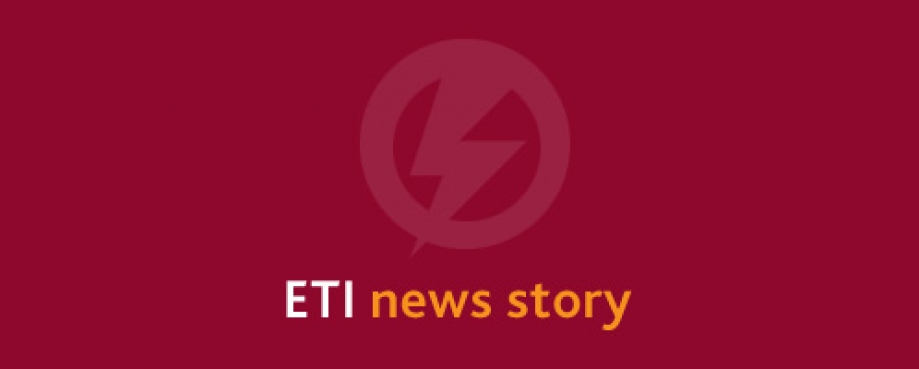
ETI was horrified to learn of the collapse of the nine-storied Rana Plaza in Savar, Bangladesh this morning. Local media report that this is one of the worst incidents of building collapse in the country’s history, with at least 80 people dead and 800 people injured. These numbers are also expected to rise.
We understand the plaza housed four garment factories, employing around 6,000 workers. We cannot begin to imagine the terror facing workers trapped inside the building, at the time of this horrific incident. Our heartfelt condolences and sympathies go out to the family and friends of the victims, and to all who will be touched by this tragedy. We urge the authorities to conduct the relevant investigations to ensure that where there is culpability, people are brought to justice.
We may only be starting to get a sense of the scale of this tragedy, as new information emerges. But what is clear is that this incident, following so quickly on the heels of recent factory fires, further demonstrates the chronic widespread issues in the sector that affect the most basic of workers’ rights. These incidents all serve as yet another call to action for the Bangladesh industry, government, retailers, worker representatives and NGOs to work together, to raise workplace safety standards across the country’s garment sector. Every worker is entitled to work in safety, in an environment that is protected against risks such as building collapses and fires, through robust health and safety systems and safeguards.
Since November last year, ETI has been facilitating a process with our members who source from Bangladesh, IndustriALL (the global union for the sector) and key NGOs to ensure a robust and long-term engagement to drive better standards. With our members, we are finalising a common approach to improve factory conditions and address health and safety issues in Bangladesh; one which places workers at the heart of the solution.
We call for effective collaboration, transparent efforts to meet minimum factory safety standards and meaningful worker engagement through the mandated factory health and safety committees. There is an agreed national plan in place which needs to be implemented as a matter of urgency, with full international support and clear accountability. We support the ILO’s work in Bangladesh, as it works to help coordinate government, industry, trade unions and civil society. It is imperative that immediate action is taken to raise factory safety standards, and prevent such tragic loss of life in the future.
Read comments on the disaster from ETI Director, Peter MAllister, made in an interview broadcast on BBC Radio 4.
